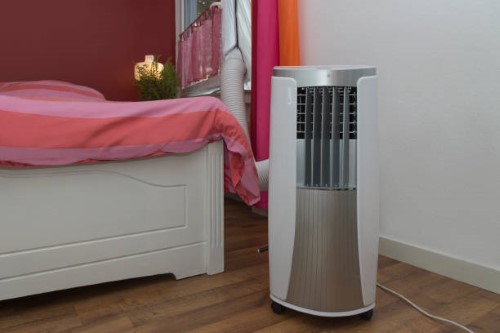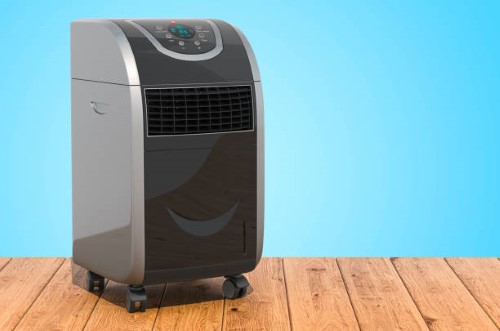Predictions for Heat Pumps and Air Conditioning Units in New Zealand

As
you consider your next heating and cooling solution in New Zealand, crucial to
stay ahead of the curve. In the coming years, heat pumps and air conditioning
units are expected to undergo significant changes, driven by increasing demand
for energy efficiency and sustainability. With regulatory changes on the horizon,
non-compliance will come at a cost - but what exactly will these changes
entail, and how will they impact your choices? As you weigh your options,
you’ll want to understand the emerging technologies and trends that will shape
the future of heating and cooling in New Zealand.
Emerging Technologies and Trends
Into the world of
heating, ventilation, and air conditioning (HVAC) systems, cutting-edge
technologies are making their way, revolutionizing the efficiency and
sustainability of heat pumps and air conditioning units. You’re likely to see
advancements in inverter technology, allowing for more precise temperature
control and reduced energy consumption. Haier AC units, in particular, are
expected to integrate these advancements seamlessly. If you’re in Auckland, you
can find high-quality heat pumps at NZ Depot, a trusted online shop offering
premium heat pumps and air conditioners in New Zealand. As the industry
continues to evolve, you can expect to see increased adoption of smart home
integration, advanced sensors, and IoT connectivity in heat pumps and air
conditioning units.
Energy Efficiency and Sustainability
With energy
consumption becoming a major concern globally, manufacturers are now focusing
on developing heat pumps and air conditioning units that prioritize energy
efficiency. You’ll notice that many upcoming units will feature inverter-driven
compressors, which can substantially reduce energy consumption by adjusting
their speed according to the required cooling or heating load. Additionally,
you can expect to see more units with high Seasonal Performance Factor (SPF)
ratings, indicating their ability to provide efficient heating throughout the
year. As you explore the market, look for units with high Energy Efficiency and
Conservation Authority (EECA) ratings and those that utilize eco-friendly
refrigerants, such as R-32, which have a lower global warming potential.
Smart Home Integration Features

As energy-efficient
solutions become more prevalent, you’ll find manufacturers integrating smart
home features into their heat pumps and air conditioning units to further
maximize performance. This integration enables real-time monitoring and control
of your heating and cooling systems, allowing you to adjust temperature
settings, schedules, and modes remotely through mobile apps or voice
assistants. Advanced sensors and algorithms can also detect occupancy and
adjust temperature settings accordingly. Some smart heat pumps and air
conditioning units can even learn your schedule and preferences, automatically
adjusting the temperature for ideal comfort and energy efficiency. You can
expect Wi-Fi and Bluetooth connectivity to become standard features in future
models.
Increased Demand and Adoption
Embracing energy-efficient
solutions, consumers are increasingly turning to heat pumps and air
conditioning units that offer significant savings on their energy bills. As you
consider this trend, you’ll notice that heat pumps, in particular, are gaining
popularity in New Zealand due to their ability to provide both heating and
cooling. This dual functionality makes them an attractive option for homeowners
looking to reduce their energy consumption. With the rising awareness of
environmental concerns, you can expect the demand for these units to continue
growing. In fact, it’s predicted that heat pumps will become the primary
heating solution for many New Zealand households, driven by their energy
efficiency and cost-effectiveness. This increased adoption will likely drive
further innovation in the industry.
Regulatory Changes and Compliance
Changes in regulatory
policies are set to play a significant role in shaping the heat pump and air
conditioning industry. You’ll need to stay up-to-date with the latest
developments to guarantee compliance. In New Zealand, the government has
introduced new standards for energy efficiency and environmental
sustainability. The Energy Efficiency and Conservation Authority (EECA) has set
minimum energy performance standards (MEPS) for heat pumps and air conditioning
units. You’ll need to verify that your products meet these standards, which are
set to become more stringent in the coming years. Non-compliance can result in
fines and reputational damage, so prioritizing regulatory compliance in your
business strategy is crucial.
Conclusion
As you navigate New Zealand’s heat pump and air
conditioning market, expect significant advancements in inverter technology and
smart home integration. Energy efficiency and sustainability will remain top
priorities, driven by regulatory changes and consumer demand. With fines and
reputational damage looming for non-compliance, manufacturers will prioritize
eco-friendly refrigerants, high SPF ratings, and Wi-Fi connectivity. You can
anticipate increased adoption of energy-efficient units, solidifying heat pumps
as the primary heating solution for many households.
NZ DEPOT
Royal Oak Mall Auckland, New Zealand 2010.
+64273659516
Location map: https://maps.app.goo.gl/tVC4TnDnVHYo7KQr8
Comentarios
Publicar un comentario